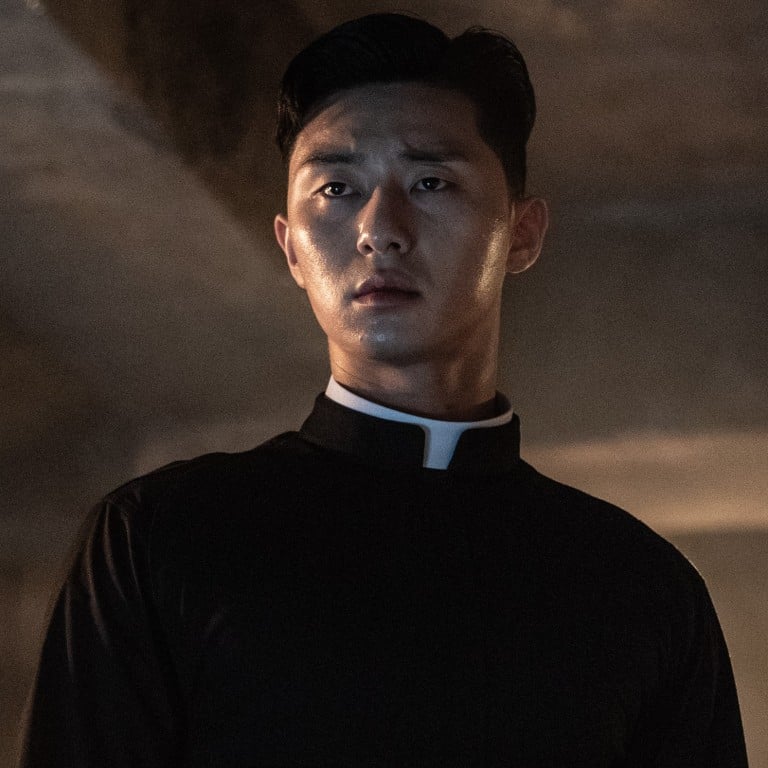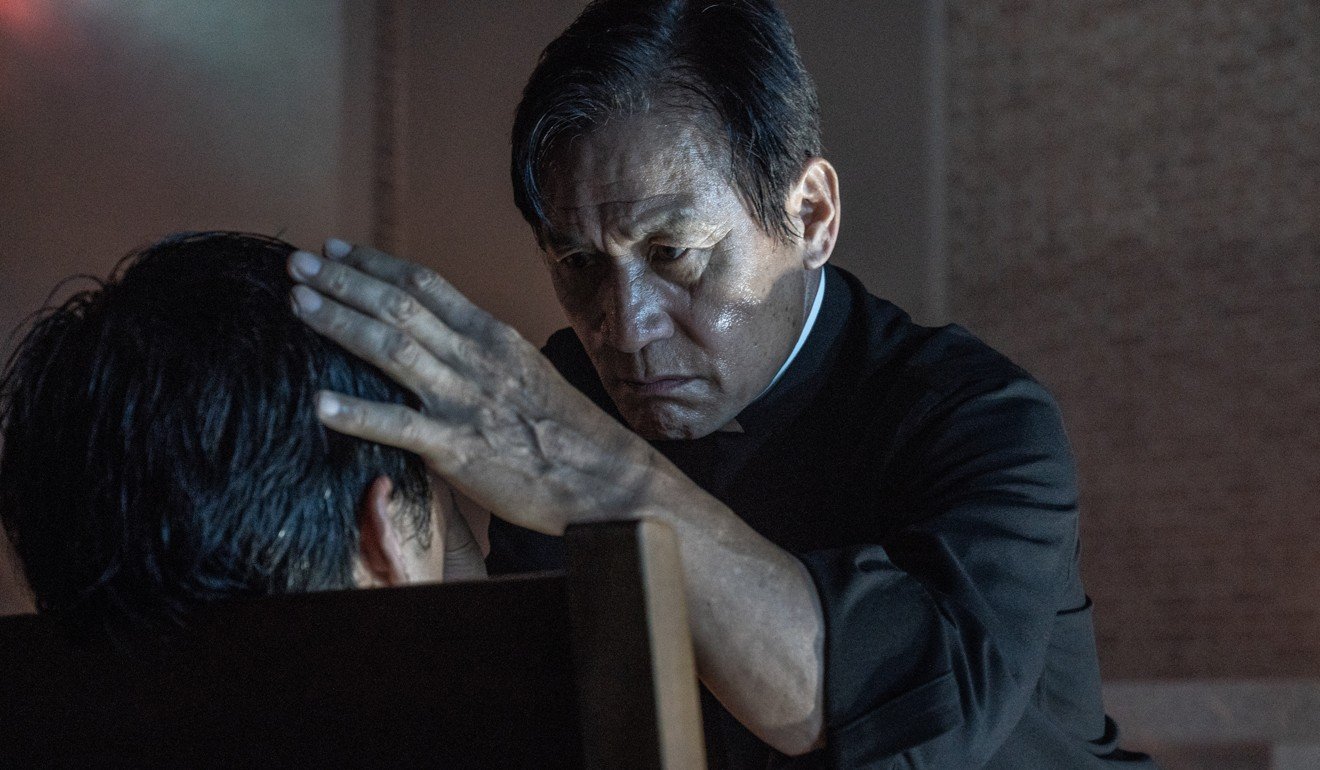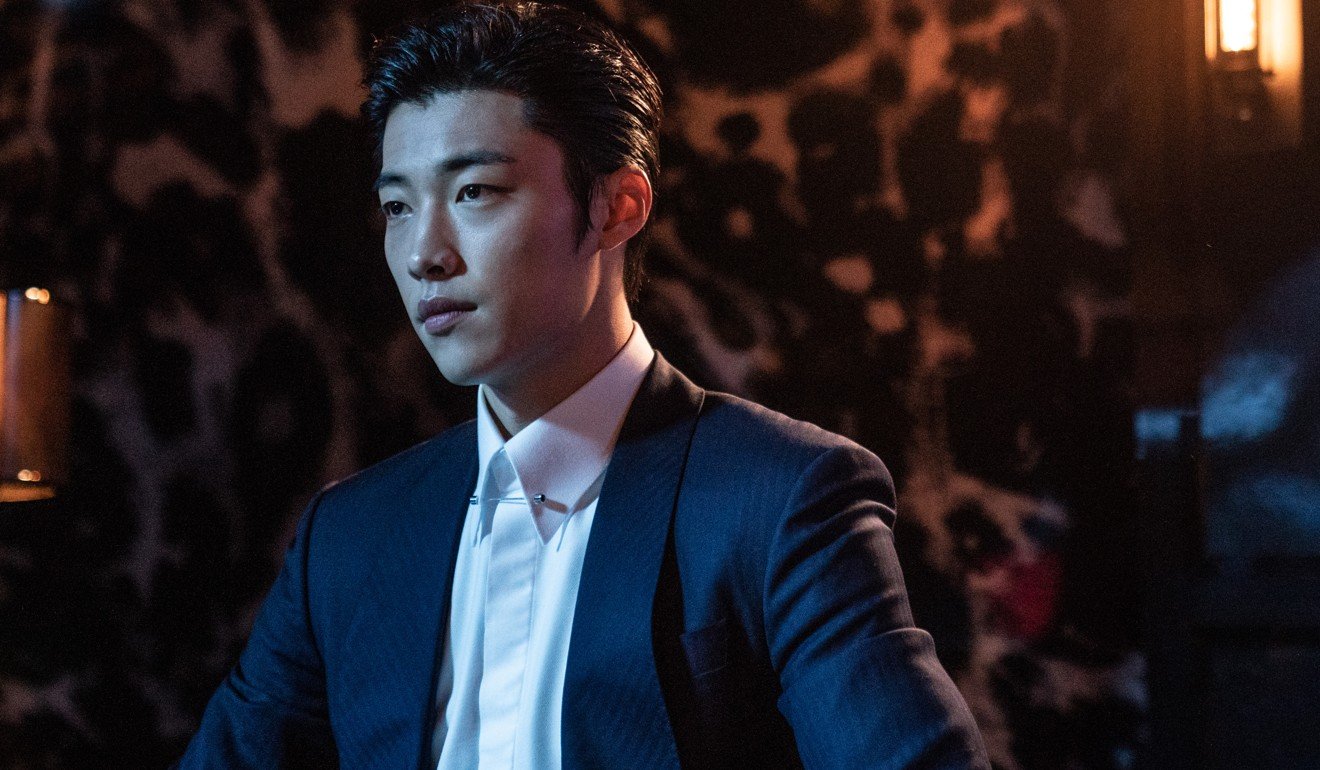
Review | The Divine Fury film review: The Exorcist meets mixed martial arts in limp Korean thriller
- Director Kim Joo-hwan doesn’t seem to know what kind of film he wants The Divine Fury to be, and result is a mishmash of genres that’s sluggish and pedestrian
- It fails to deliver the scares or excitement that exorcisms and gore should provide
2/5 stars
Anyone bemoaning the lack of mixed martial arts in William Friedkin’s horror classic The Exorcist may very well rejoice at the prospect of director Kim Joo-hwan’s The Divine Fury, a high-concept horror-action hybrid that will answer their prayers.
Seemingly determined to combine the sensibilities of Keanu Reeves’ John Wick films and Constantine in an all-kicking, all-punching battle between Good and Evil, grieving MMA champion Yong-hoo (Park Seo-joon) teams up with a world-weary exorcist to rid Seoul of Satan’s demons. But the pairing fails here, in contrast to Kim’s previous film, the excellent Midnight Runners.
Since losing both his parents at a young age, Yong-hoo has harboured a vengeful hatred of The Almighty, which he has channelled into a successful fighting career. But when he inexplicably develops a stigmata-like wound, Yong-hoo reluctantly seeks pastoral advice.
Father Ahn (Ahn Sung-ki), a Vatican emissary sent to Korea to monitor rising demonic activity, sees potential in Yong-hoo, and when his wound successfully defeats an attacking demon, the pair form an unlikely partnership.
Unfortunately Park, who starred in the recent hit TV series What’s Wrong with Secretary Kim and was excellent in Midnight Runners, spends far too much time in The Divine Fury brooding and pouting. Meanwhile, screen legend Ahn’s battle-hardened priest is cold and elusive throughout. Their quarry is an equally underwhelming foil.

Known to them only as the Dark Bishop, Ji-sin (Woo Do-hwan) lurks in the bowels of his cavernous and ridiculously flashy nightclub, Babylon, recruiting victims into Lucifer’s legion of demons. Beyond that, his rich, handsome and emotionally vacuous villain is just the latest in a tired, languorous tradition that has long outstayed its welcome in Korean cinema.
A few shadowy ghouls and moments of visual trickery aside, The Divine Fury fails to deliver the scares one would expect from a film dealing with exorcisms. Martial arts fans may also have lost interest long before the final, neon-drenched showdown in the halls of Club Babylon.
Rather than capitalise on its ridiculous, though admittedly attention-grabbing premise, The Divine Fury simply cannot commit to what kind of film it wants to be, resulting in a sluggish, pedestrian thriller. Kim unwittingly proves that it takes more than tossing together a random collection of genre tropes to make a successful high-concept movie.

The parting promise of a sequel, entitled The Green Exorcist and focusing on Choi Woo-sik’s trainee demon queller, does little to inspire enthusiasm.

